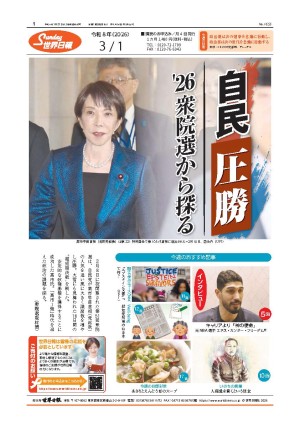武器管理条約めぐり民主が追及 U.S., Russia arms treaty scrutinized
米議会は15日、懸案となっているロシアとの核兵器条約をめぐって政府の武器管理当局者らに詰め寄った。トランプ政権の大量破壊兵器削減と核拡散抑制に関する交渉で不透明感が強まっているためだ。
上院外交委員らは、新戦略兵器削減条約(新START)への今後の対応をめぐってトンプソン国務次官(武器管理担当)を追及、政権は、2021年に失効する新STARTを5年間更新するのかどうかを質(ただ)した。
トンプソン氏は「政権は、新STARTを延長するかどうかについて何も決めていない」と述べ、条約の更新が米国の利益になると思うかとの質問をかわした。
...【全文を読む】







